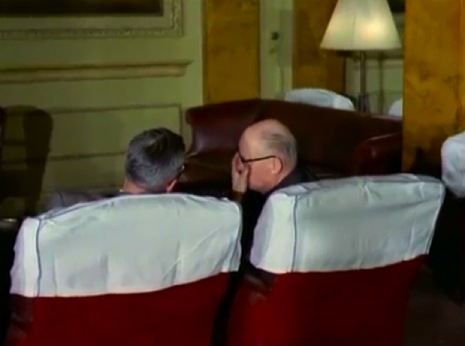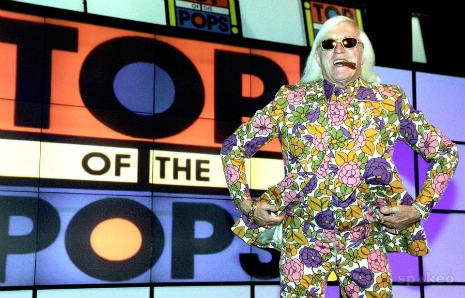
This short film on Member’s Only Gentlemen’s Clubs and London Club Life from 1965, may look dated and even slightly quaint, capturing a world of seedy Anthony Powell characters in run-down, thread-bare, drafty rooms, but in very real terms, little has changed.
The Old Boy’s Network of privilege and power is still very much alive, and the British Establishment is probably now stronger than it has been in decades. Look at the celebrations for the Queen’s Jubilee, or the sofa jingoism of the Olympics, or this week with the failure of the Church of England to vote in favor of Women Bishops, and now today, the appointment of Lord Tony Hall as the new Director General of the BBC.
Hall was chosen by Lord Christopher Patten, whose previous choice for DG had been the hapless “incurious” George Entwistle, the man who was forced to resign after 54 days in office. Now Patten has appointed Hall - without an interview - as the new DG.
Hall is a successful ex-BBC man, who currently runs the Royal Opera House. He may be a decent and honorable man, he may kiss dogs and pat babies, and help old age pensioners across the street, but he is a BBC man, steeped in the arcane and out-dated traditions of a Corporation that is out-of-touch with the reality of life in Britain. His appointment is rather like voting for a Mitt Romney rather than a Barack Obama, it’s a wishful return to an illusory past, rather than moving forward into the present century. Even some of the effusive praise on twitter harks back to an older time - this from broadcaster David Dimbleby:
‘A brilliant choice. It feels like being in the Royal Navy when they were told, “Winston is back!”’
It’s strange that a previous era of strife, hardship, bigotry and division should be seen as commendable. Earlier this year, the up-market Daily Telegraph (of all broadsheets) reported on the analysis of “the make-up of the Lords found that 45 per cent of peers also had a London club such as the Garrick Club, Carlton Club or White’s.”
The [analysis], published in the journal Sociology, also showed the enduring power of Eton and Oxbridge, with around one in 10 of all members of the Lords educated at the Berkshire school whose past pupils also include David Cameron and Boris Johnson.
Dr Matthew Bond, a sociologist at London South Bank University, who conducted the study, said that it showed that, despite reforms, the Lords continued to be dominated by those with “vested interests in traditional status structures”.
He said it showed that: “The persistent hold of the British establishment on the political imagination is not without reason.”
...Those who went to school at Eton showed a particular propensity to join such clubs, the study found, while they were also popular among this with a background in the military, civil service and the church.
“These groups – hereditaries, males, Old Etonians, Tories and, to a lesser extent, business people – have vested interests in traditional status structures,” said Dr Bond.
“In their social characteristics they also closely mirror popular conceptions of an establishment which have featured in popular discussions of the British power structure since the 50s.
“If they do not have a monopoly over elite positions, they at least have a formidable presence.”
This “formidable presence” is what links Tony Blair’s working-class father’s move from Glaswegian Communism to middle-England Toryism, with Eton-educated David Cameron belief that elitism in education will mend Britain’s so-called “broken society.” This “formidable presence” isn’t tradition - it is the maintenance of an out-dated, misogynistic, divisive and malfunctioning Establishment.
Members Only is a fine snap shot of club life in the 1960s, which moves from gentlemen’s clubs to casinos and then onto the bohemian hang outs, such as the Colony Room (look out for the legendary Muriel Belcher) and jazz clubs, where a young Annie Ross performs.






